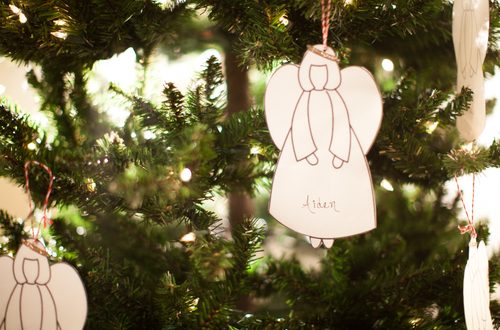Appia’s Story
Today my city, Colossae, lies buried under a mound of dirt in Turkey, awaiting excavation financing. But if you’ll come with me on a journey through time—two thousand years back—you’ll find me living there with my husband, Philemon, and my son, Archippus.
Colossae is located in Phyrgia, a region that sits on a rocky ridge above a branch of the Maeander River. Its waters plunge into a chasm and disappear underground for a half-mile. A few miles away, Mt. Cadmus towers over us, jutting up two miles into the clouds.
People pass through here on their way east to the Euphrates, and most of these travelers come from the port at Ephesus, a hundred miles away. Everyone knows that city is home to one of the seven wonders of the world, Artemis’s temple.
Thanks to streams flowing down from Cadmus, Colossae is fed by cool mountain waters. Only eleven miles away lies Laodicea, which has no water supply of its own, so they pipe ours over. Thirteen miles from us is Hierapolis, which has beautiful hot springs full of minerals. Laodicea pipes that in, too. But all the water there is lukewarm by the time it travels all that way. Ours is the best.
Six centuries before my time, during the Persian wars, our city was more famous. Esther’s husband, Xerxes, stopped here during his greatest military campaign. And two hundred years later, according to Xenophon, Cyrus the Younger set out with his troops from Sardis and marched through this region in three stages. When they reached the other side of our river, it was too broad to cross. So they created a bridge using seven boats, and after crossing, they stayed here seven days.
As our neighbor cities have grown, we have declined. Now we’re just a second-rate market town, thanks to a rerouting of the highway through Laodicea. Still, because of our sheep with unique purple wool, we’re still a trade-route stop on the way east.
My husband is a householder over a vast estate. He and I, citizens of Rome, have seen emperors come and go. At the moment, Nero is in power, and it’s not the safest time to live for those of us who believe in Jesus as the Christ. We gather in our home, Jew and Gentile alike, for worship, having believed through the word of our friend Epaphras. On business in Ephesus once, he heard about Jesus through Paul of Tarsus, who was living there at the time. Upon Epaphras’s return to Colossae, he shared with us the good news, and we invited the church to meet in our home.
A few years later, our servant Onesimus ran away, a crime that could have carried the death penalty, if my husband had chosen to prosecute. We thought we would never see him again.
But months later, we were meeting for worship one morning, when I heard some commotion at the door. There stood our slave of his own free will! Up to that point, no one we knew had ever heard of a runaway returning. And if that weren’t shock enough, standing there with him was Tychicus of Asia, the apostle Paul’s beloved friend and fellow servant.
The story gets better. Onesimus told us that he escaped all the way to Rome. And there he met Paul, who was sitting in a Roman prison. Apparently, after Paul’s time in Ephesus, he was thrown in jail for his faith and sent to Rome to await trial before Nero (Acts 25), to whom he had appealed.
The apostle, being more concerned about our slave’s soul than his legal status, had the joy of seeing Onesimus come to faith and helping him use his gifts. As Onesimus matured, he saw his need to return and make things right with us—even risking death to do so. So Paul, with the help of his amanuensis, composed letters that Onesimus delivered, and he sent Tychicus to accompany him. We might have disbelieved it all, except that Tychicus verified the whole story.
Onesimus and Tychicus did indeed bring three letters from Paul. One was a personal missive to my husband, asking him to forgive his rebel slave. Another was addressed to the believers who meet in our home [“the Book of Colossians”]. And the third was intended for the saints in Laodicea [possibly “the Book of Ephesians”].
Those who meet in our house have all sorts of unusual ideas, thanks to Colossae’s location on the way to the East with its Eastern and occult influences. Some people are into angel worship. Others argue that God could not have created the world, because “matter is evil.” Some love mystery religions. And others emphasize spiritual techniques for getting in touch with spiritual beings. Many believe we must have a certain level of secret knowledge to hear from God.
If that weren’t enough, the Jewish believers, with their ancient traditions, often want to do things “the way we’ve always done them.” So they tell us non-Jews that we must keep the Law. Let me tell you, Philemon and our son are not excited about circumcision….
Hearing about these people and their ideas from Onesimus motivated Paul to help us know better the character of our Lord and Master, Jesus Christ. Because what we think about God and what He thinks about us are the most important things about us.



One Comment
Belle Unruh
Appia’s Story
This is a wonderful and interesting story. I felt I had gone back to that time. Thanks so much.